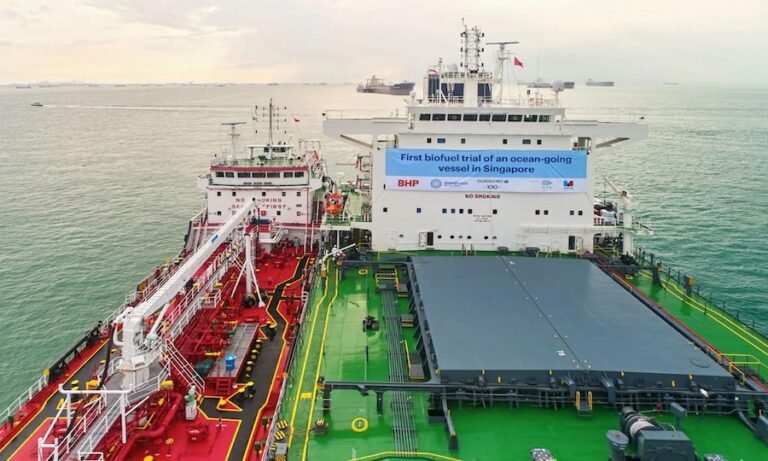The Pushback Against Biofuels in Shipping: A Call for Sustainability
Hapag-Lloyd and Louis Dreyfus Armateurs are leading a campaign against the growing use of biofuels in shipping, highlighting the environmental concerns associated with this alternative marine fuel. The issue is being discussed at the eighteenth Intersessional Working Group on Greenhouse Gases (ISWG-GHG 18) meeting at the International Maritime Organisation (IMO) today.
Many NGOs and shipping lines argue that the current production of biofuels from food crop-based feedstocks contributes to deforestation and other sustainability issues. A campaign has been launched to address the potential negative impacts of replacing fossil fuels with unsustainable biofuels.
“Fuelling cargo ships with deforestation is a terrible idea”
According to a study by NGO Transport & Environment (T&E), nearly a third of global shipping could run on biofuels by 2030, a significant increase from the current usage. However, concerns have been raised about the reliance on palm and soy oil as major biodiesel sources due to their environmental impact.
The use of biofuels derived from palm and soy oil could lead to increased carbon emissions and require vast amounts of farmland. The study estimates that an area the size of Germany would be needed to meet the demand for biofuels in the shipping industry by 2030.
European countries like France, Norway, and the Netherlands have already taken steps to restrict or stop the use of palm and soy-based biofuels domestically. The pushback against crop-based biofuels in shipping calls for the IMO and member states to discourage their use and consider excluding them from compliance with regulations.
Constance Dijkstra, shipping manager at T&E, emphasized the need to consider the climate impact of biofuels and avoid worsening the environmental situation. The upcoming climate rules for shipping in April will play a crucial role in determining the industry’s transition to renewable energy.
Biofuelwatch and the Global Forest Coalition have also raised concerns about the potential negative impacts of relying on biofuels for shipping. The debate around biofuels in shipping mirrors previous discussions in the aviation industry, highlighting the importance of sustainable fuel sources.
While some shipping companies have turned to recycled vegetable oil as an alternative fuel, campaigners argue that this solution is not without its limitations. The availability of waste and residues for biofuel production is limited, and their use could lead to high indirect greenhouse gas emissions.
As the shipping industry grapples with the transition to cleaner energy sources, the debate around biofuels continues to raise important questions about sustainability and environmental impact. Finding a balance between reducing emissions and preserving ecosystems remains a key challenge for the future of shipping.

